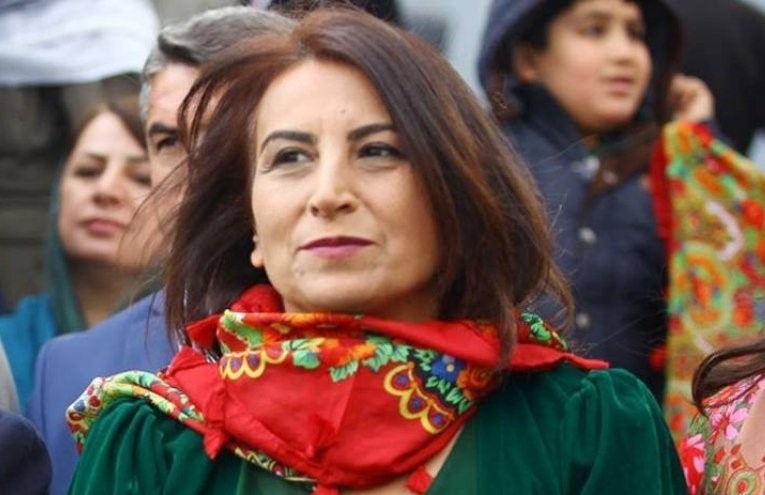The health of former Peoples’ Democratic Party (HDP) lawmaker and current inmate Aysel Tuğluk has rapidly deteriorated, and proper treatment cannot be provided in prison, according to a report prepared by the Turkish Medical Association (TTB), the Stockholm Center for Freedom reported.
Tuğluk was first diagnosed with dementia in 2021 at Seka State Hospital in the northwestern province of Kocaeli. The TTB report said Tuğluk has been suffering from dementia-related depressive symptoms as well as cognitive disorder. It also noted that her cognitive skills were rapidly deteriorating.
The TTB report, prepared at the request of Tuğluk’s lawyers, also stated that Tuğluk’s illness would worsen if she continued to remain in prison. For this reason, it was determined that Tuğluk could not receive adequate treatment in prison and that she should be admitted to a full-fledged hospital.
Tuğluk, who had previously been examined by the Council of Forensic Medicine (ATK), was sent back to prison when the institute decided that she was fit to remain incarcerated.
The TTB also referred to the ATK report on Tuğluk, saying, “All medical reports except the ATK report said Tuğluk’s diagnosis was dementia and that she should be treated urgently under appropriate conditions.”
As the number of sick inmates dying in prison has increased, doubts about the credibility and independence of the council have grown, as the institution is affiliated with the Ministry of Justice.
Tuğluk was arrested on December 29, 2016 while she was co-chair of the HDP along with seven other Kurdish opposition politicians. She was sentenced to 10 years in prison on charges of serving as the executive of a terrorist organization and taking orders from Abdullah Öcalan, the jailed leader of the outlawed Kurdistan Workers’ Party (PKK).
The PKK is an armed secessionist group listed as a terrorist organization by Turkey and much of the international community.
Several public speeches she made and her attendance at funerals of alleged terrorists were used as evidence against her in court.
Tuğluk has denied the accusations, saying she never called for violence and always sought democratic solutions to the problems Kurds faced. She added that she was only a member of the HDP and the Democratic Society Congress (DTK), an umbrella organization that aims to bring together pro-Kurdish political parties and NGOs. However, Turkish authorities have argued that the DTK has links to the PKK.
Human rights activists and opposition politicians have frequently criticized authorities for not releasing critically ill prisoners so they can seek proper treatment. Human rights defender and HDP deputy Ömer Faruk Gergerlioğlu said ill prisoners were not released until they were at the point of no return.
According to Gergerlioğlu, sick prisoners are released when the authorities realize they will die soon. He claimed that prisoners did not have access to proper healthcare facilities such as hospitals or infirmaries.
HPD deputy Züleyha Gülüm said political prisoners were the most disadvantaged and were often the least likely to be released in the event of a serious health problem.
Since April 2020 four seriously ill prisoners over the age of 70 have died in penal institutions; five inmates suffering from cancer passed away shortly after they were released; and 16 died of chronic illnesses while imprisoned.



